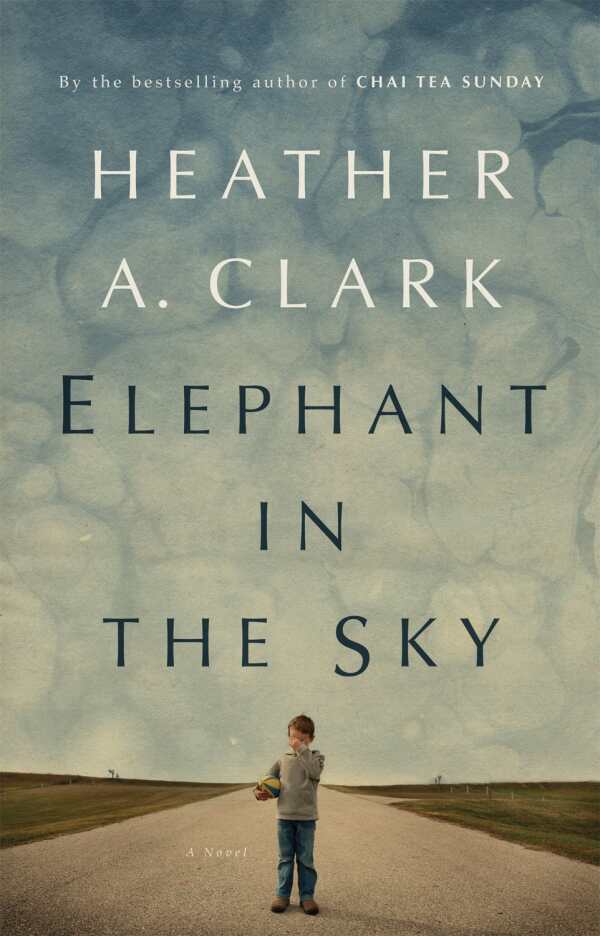Elephant in the Sky
The point of view of a bipolar child offers an accurate portrayal of a child’s thought patterns, both rational and delusional.
Based on a true story, Heather Clark’s second novel, Elephant in the Sky, offers a clear portrait of childhood mental illness and accompanying family stress.
Told from the dual perspectives of nine-year-old Nate and his mother, Ashley, the plot unfolds in a straightforward fashion with no twists, turns, or surprises. Characters and dialogue generally are realistic, although the story’s overly optimistic outcome is less than true to life.
Nate’s chapters, in particular, are skillfully crafted. They provide an accurate portrayal of childlike thought patterns, both rational and delusional, and describe the boy’s mental confusion and panic as he descends into bipolar psychosis. Only occasionally do intrusions disrupt the flow of Nate’s thoughts. The boy says, for example, “I can’t think properly”—rather than a more adult typical child’s “my head is messed up.”
Clark’s protagonist, Ashley, presents more difficulties. Her willingness to do everything in her power to protect her child and guide him to health is an admirable trait, one likely to resonate with other parents. But rather than being a sympathetic heroine, Ashley often appears to be a “helicopter super-mom” whose histrionics impede rather than assist Nate’s recovery.
The writing includes some odd metaphors and similes, often involving feelings “attaching” themselves to her characters. Also, both the tendency to tell rather than show and the proclivity to include dialogue in detail disrupt plot progress. At half its current length, Nate’s story could have packed more punch. People with family members who suffer from mental illness may bristle at Clark’s occasional preaching: “I know [having a child with bipolar disorder has] felt like hell … but, if you look harder, I think you’ll see that it’s actually been a blessing.”
Readers may learn valuable lessons from the novel’s detailed descriptions of delusional thinking, psychiatric procedures, medications and their side effects, and communications that hinder or assist family functioning. While those who understand the chronic and unrelenting nature of most psychoses—and the resulting struggles that too often rip families asunder—may find the Pollyannaish finale of Elephant in the Sky unsatisfying, the ending offers hope to families who must contend with the tragedy of mental illness, and therefore may provide solace.
Reviewed by
Nancy Walker
Disclosure: This article is not an endorsement, but a review. The publisher of this book provided free copies of the book to have their book reviewed by a professional reviewer. No fee was paid by the publisher for this review. Foreword Reviews only recommends books that we love. Foreword Magazine, Inc. is disclosing this in accordance with the Federal Trade Commission’s 16 CFR, Part 255.

